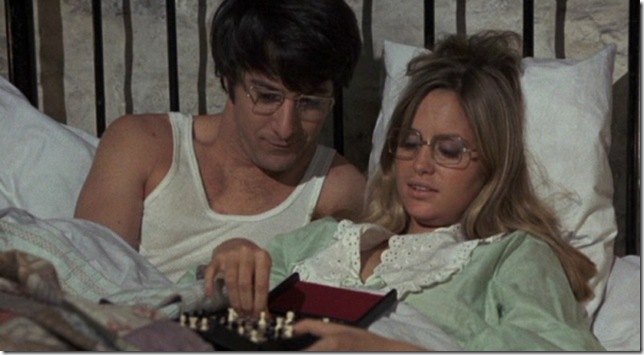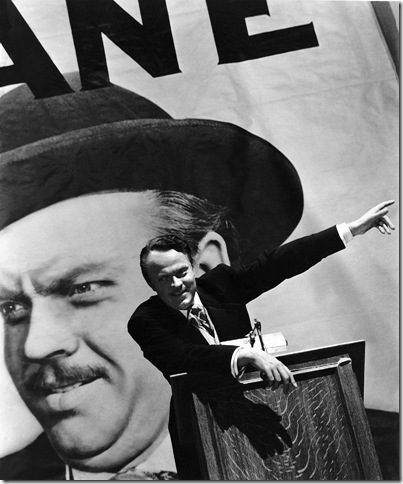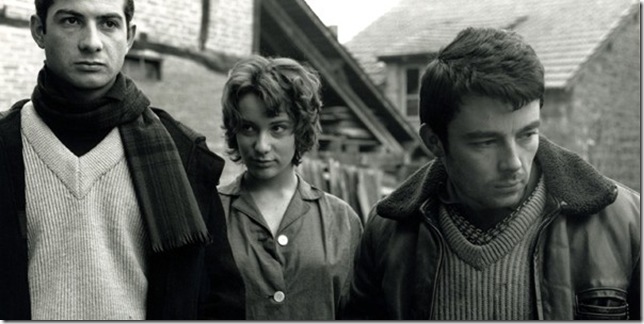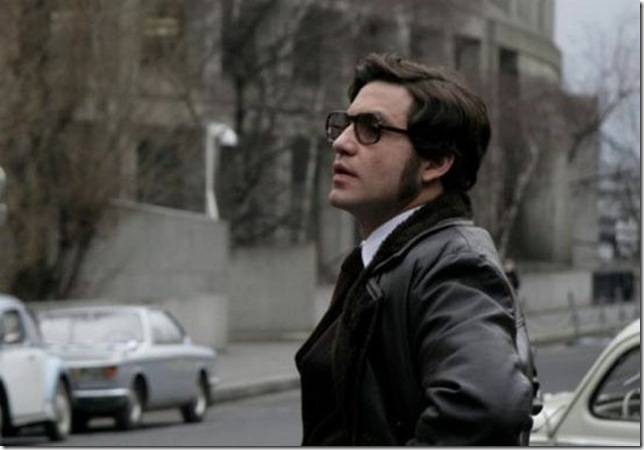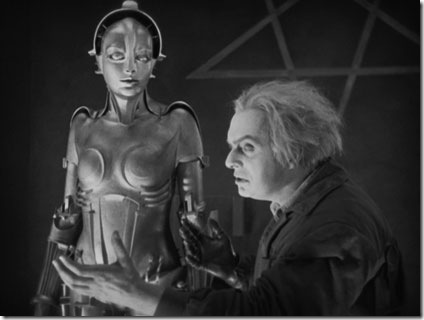I understand that Sam Peckinpah’s Straw Dogs has been remade, with the Rod Lurie-directed film set to bloody cinema screens everywhere Sept. 16.
It was only inevitable that a film whose shocking, graphic depictions of violence and sexuality, which were well ahead of their time in mainstream cinemas in 1971, would be mined and possibly exploited by a generation of moviemakers and moviegoers for whom graphic violence and sexuality are very much of their time. If I Spit On Your Grave, the most notorious shock-cinema classic of the ‘70s, could be remade by Hollywood, as it was in 2010, then anything can.
Lurie, who gave us The Contender and Resurrecting the Champ, is a good director, but I’m afraid to see what Straw Dogs will resemble as a 21st-century studio movie, particularly if the worthless, torture-porn revision of I Spit On Your Grave was any indication. Straw Dogs was arguably the premier ultraviolent home-invasion movie, filmed decades before the trope became commonplace in horror cinema. I fear the remake will look too glossy, too overdramatic, too enamored with its own expensive hemorrhaging. Worse yet, I’m afraid it will abandon the moral ambiguity of the original, converting its sense of a completely depraved and decaying hamlet into a story of familiar good-versus-evil archetypes.
Thankfully, the remake has at least prompted the Blu-ray release of the original film (Fox, $16.99), which looks better than ever (no extras, though). The story is simple: Dustin Hoffman’s workaholic mathematician David and his beautiful young wife Amy (Susan George) arrive in Southern England for a yearlong sojourn in Amy’s hometown. Their relationship is a stressful, pins-and-needles affair of verbal spats and frustrated expressions even before the terrors of the outside world encroach on their home in the form of the local handymen hired to work on their property. The mens’ opening salvos – a dead cat here, a dangerous roadway trick there – lead to a sexual assault and finally a crazed home invasion fit for pitchforks and torches.
This story, the stuff of many a forgettable exploitation film, becomes the lurid canvas for one of Peckinpah’s most artful explorations of the darkness of the human soul. Straw Dogs was his first non-Western, but the lawless brutality and the absence of sheer goodness that characterized his groundbreaking Westerns carries over nicely, and more profoundly, in the “civilized” modern world. Where other films might treat Amy as a tragic innocent defiled by evil men, Peckinpah captures her duality as tease and victim, suggesting her lecherous attackers to come hither and subjecting the awful consequences when they do.
Peckinpah introduces her breast-first as she saunters across the street, a seemingly sexist shot with a brilliant ulterior motive: Followed by images of the townsmen staring at her figure, this opening immediately and bluntly identifies her as an object of desire, establishing a tone of unease and menace that persists through the film’s first 40-odd minutes, a boiler room of pre-violence tension (As with Psycho, it can be argued that the best parts of Straw Dogs happen long before any of the controversial stuff).
David, the movie’s ostensible protagonist, is hardly a paragon of virtue either. Behind Hoffman’s foppish hair and thick spectacles (he vanishes into this unbecoming part) lie the roots of a psychopath, present long before his full-blown transformation into a gun-brandishing, tribe-protecting savage. There is simply no better scene in Straw Dogs than the one of David’s abuse of Amy’s cat, pelting the offscreen feline with a barrage of fruit, just for the hell of it. When he finds the cat strung up in his bedroom closet a few scenes later, he plops down in a chair in a state of wordless shock and perverse acceptance, perhaps realizing that he could have just as easily been the one to have done it.
For these and many reasons, Straw Dogs transcends its reputation as a B-movie gorefest; it’s a film that should have a regular residence in the halls of film-studies academia. Peckinpah’s intercutting offers an extraordinary absorption of Sergei Eisenstein’s theories of associative montage, which manifests itself most effectively in the rape scene and its aftermath, as visions of the assault cloud Amy’s psyche like war flashbacks in even the most benign settings (though Peckinpah movies don’t have very many of those). Those who want to find interpretations of the male gaze (in the film’s self-conscious treatment of Amy) and the Other (As an American, David is a poked and prodded minority amid a gnarled U.K. contingency) will notice these as well.
When the new Straw Dogs opens soon, it will prompt the same question we exasperated critics ponder every time a masterpiece is remade: Why tinker with perfection? The answer is always money, of course, or laziness, or some combination of the two. If The Manchurian Candidate, Solaris, The Wicker Man and Psycho are blueprints, this will be another bet that doesn’t pay off.
DVD Watch: Sept. 13: The most notable disc of this week, and the whole month of September, is undoubtedly the Blu-ray premiere of Citizen Kane (Warner Bros., $39.99). Warner went all out on the 70th anniversary of Orson Welles’ modernist masterpiece. The bonus features total more than four hours of entertainment and information, including two full-length films: the PBS documentary The Battle Over Citizen Kane and the HBO docudrama RKO 281.
There are two commentaries, storyboards, a press book, deleted scenes, interviews with cast and crew and even an audio recording of Welles’ seminal War of the Worlds radio broadcast for the Mercury Theatre. For an additional $10, order this box set from Amazon, and you’ll get Welles’ rarely screened The Magnificent Ambersons as an additional bonus disc. With the holidays around the corner, think of gifting it to someone special.
Also on tap for this date are two of the best movies, so far, of 2011: Meek’s Cutoff (Oscilloscope, $23.99 Blu-ray and $18.99 DVD), Kelly Reichardt’s Antonioni-meets-Malick existential study of lost settlers adrift on the Oregon Trail; and Le Quattro Volte (Kino, $31.49 Blu-ray and $26.99 DVD), a singular experience of life, death and rebirth from Italy. Peter Jackson’s underrated horror-comedy The Frighteners (MCA, $26.91) also makes its Blu-ray debut.
Sept. 20: On this date, Criterion will release a pair of titles by a great director whom the distributor has never explored previously: Claude Chabrol. Considered the founding father of the French New Wave, Chabrol died around this time last year after completing 50 features over a prolific half-century. Criterion takes us all the way back to his very first two features, Le Beau Serge and Les Cousins ($27.99 Blu-ray and 21.99 DVD each). The former is about a theology student who reunites with an unhappy childhood friend; the latter takes the two actors from the former and reverses their characters in a complementary study of the duality of man. I can’t wait for these titles. Supplements include newly shot documentaries and audio commentaries and vintage clips from French television.
Also this week, silent film lovers are already salivating over Flicker Alley’s Landmarks of Early Soviet Film box set ($62.99), which compiles such rare classics as Sergei Eisenstein’s last silent Old and New, Dziga Vertov’s Stride, Soviet, Victor Turin’s Turksib, Lev Kuleshov’s The Extraordinary Adventures of Mr. West in the Land of the Bolsheviks, Mikhail Kalatozov’s Salt for Svanetia and more. Enjoy the work of an octet of still more great directors, in a more truncated form, in the omnibus film Visions of Eight (Olive Films, $22.49), which features short contributions from Kon Ichikawa, Milos Forman, Arthur Penn, John Schleshinger and others. And I’m particularly excited this week about The Strange Case of Angelica (Cinema Guild, $34.95 Blu-ray and $29.95 DVD), 102-year-old auteur Manoel de Oliveira’s latest magical realist, voyeuristic mystery.
Sept. 27: This week, Image Entertainment’s The Blood Trilogy ($12.99) reissues three gorefests from B-movie maven (and Broward County resident!) Herschell Gordon Lewis on Blu-ray at a budget price. Criterion unveils its edition of Carlos ($34.99 Blu-ray and $33.99 DVD), one of 2010’s most critically acclaimed films. Olivier Assasyas’ exhaustive account of international terrorist Carlos the Jackal runs 330 minutes and includes new video interviews and a making-of documentary. This is a great rainy-day disc. Also, check out the Blu-ray premiere of the director’s cut of Guillermo del Toro’s Mimic (Lionsgate, $9.99).
TCM Watch: September starts slow for rare and unusual fare on TCM, but it picks up on Sept. 16. Michael Curtiz’s Bright Leaf (10:30 a.m.) is an unusual historical drama about a tobacco grower who shocks his community by planning to mass-produce cigarettes. Gary Cooper stars, and I’ve been wanting to catch this film ever since it became a central text in documentary filmmaker Ross McElwee’s Bright Leaves. The night ends on a culty note, with the unreleased-on-home-video 1967 B-horror film Corruption at 2 a.m. and the 1973 psycho-horror-comedy Wicked, Wicked at 3:45 a.m., which uses split-screen technology to tell the entire story.
On midnight Sept. 18, check out the newly restored, two-and-a-half-hour cut of Fritz Lang’s pioneering Metropolis, followed by Metropolis Refound, the sausage-making documentary about its reconstruction. On Sept. 20, a Kirk Douglas tribute night includes screenings of the unreleased The Devil’s Disciple (1:45 a.m.), a 1959 Revolutionary War drama costarring Burt Lancaster, and 1961’s acrid Town Without Pity (3:15 a.m.), one of darkest and most cynical films to emerge from the classic Hollywood studio system.
Finally, on Sept. 30, TCM will screen two features by the famed, controversial, surrealist Yugoslavian auteur Dusan Makavajev: Love Affair, or the Case of the Missing Switchboard Operator (2 a.m.) and A Man is Not a Bird (3:15 a.m.). These are both available on a wonderful Criterion Eclipse box set, but I’m mentioning them here to bruit the sheer fact that Dusan Makavajev movies are being broadcast on American cable television. Frankly, I never thought I’d see the day.
